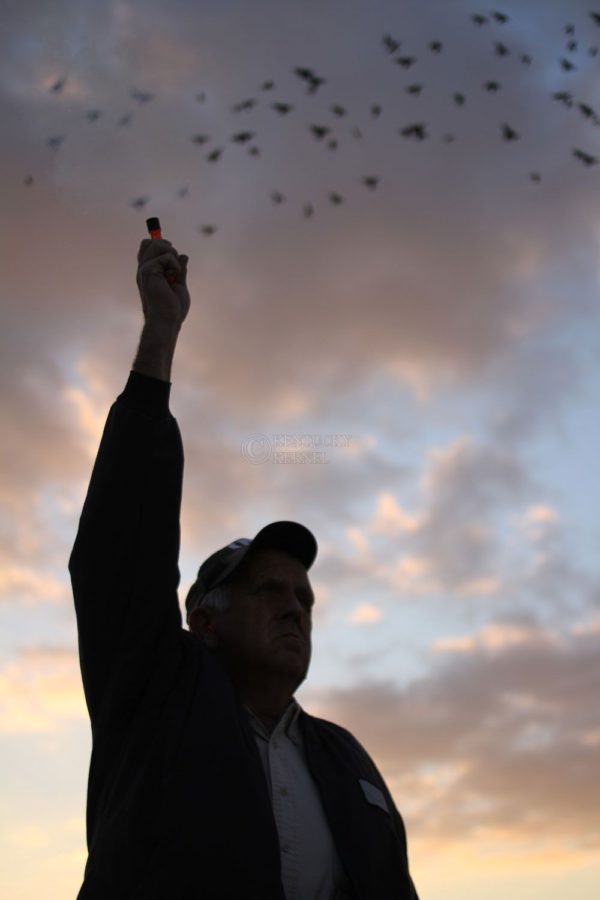Bird cannons prevent disease, damage
October 9, 2012
By Morgan Eads
“What the heck is that, do they have left over fireworks from the Fourth of July?” asked Paulette Bryan, employee for UK Pharmacy Services, while walking near the library Thursday.
Some students have heard the mysterious shrieks and pops that ring through campus at dusk during autumn, but there are a few unsure of what they are.
“Personally, I was kind of concerned when I first heard it, I was wondering if it was gunshots,” Joshua Heilmann, nursing senior, said.
The sound is actually something quite harmless to humans, according to Carl Nathe, UK public relations information officer.
He said in an email to the Kernel on Monday that the sounds are from noisemaking devices shot off to scare birds from certain areas.
Processes like this have been used for around fifteen years, Nathe said.
He also said that the noisemakers are generally used in fall around dusk because it is when the birds moving through tend to settle and nest.
It is the goal of the UK Physical Plant Department to prevent the birds from roosting in trees around sidewalks and parking lots.
Bird droppings do not only cause annoyance and property damage in these high traffic areas, but they are a potential health hazard, Nathe said.
The Centers for Disease Control and Prevention list a number of diseases that can be contracted from bird droppings on their website.
According to the website of Gempler’s, a company that sells the noisemakers, they are shot from a cap gun, known as a “Bird Banger.”
The cap guns are not loaded with live ammunition and, therefore, pose no real threat to humans.
The law enforcement in the area has to be notified before the noisemakers are used because of the gunshot nature of some of the noises.
They emit a 100-decibel sound meant to deter the animals without harming them.
No lasting effects are felt by the birds said Steve Rice from the Audubon Society of Kentucky.
Though the heart rate of the bird may be temporarily elevated by the scare, it has no long term damage to the individual birds or the population overall.
“They are always scared of things, that’s part of a bird’s life, they are used to stress,” Rice said.
Also, no change to the migration, roosting or eating patterns is felt by the birds. They will just continue on and nest somewhere else, Rice said.
He also said the only problems, if any, of this process are felt by the people who live around the outskirts of campus where the displaced birds will often land.
Students said they were not annoyed by the noise of the bird repellants.
“Honestly, it doesn’t bother me, I definitely notice it, but I feel like it doesn’t go off enough to be annoying,” Ally Halpin, an undeclared freshman, said.
Some even had a sentimental view of the screeches and pops.
“I always smile when I hear it, it signifies fall for me,” Tyler Green, a computer engineering senior, said.























































































































































